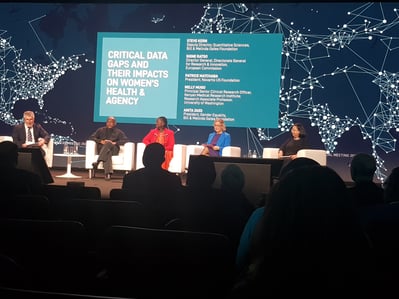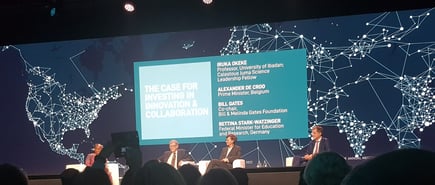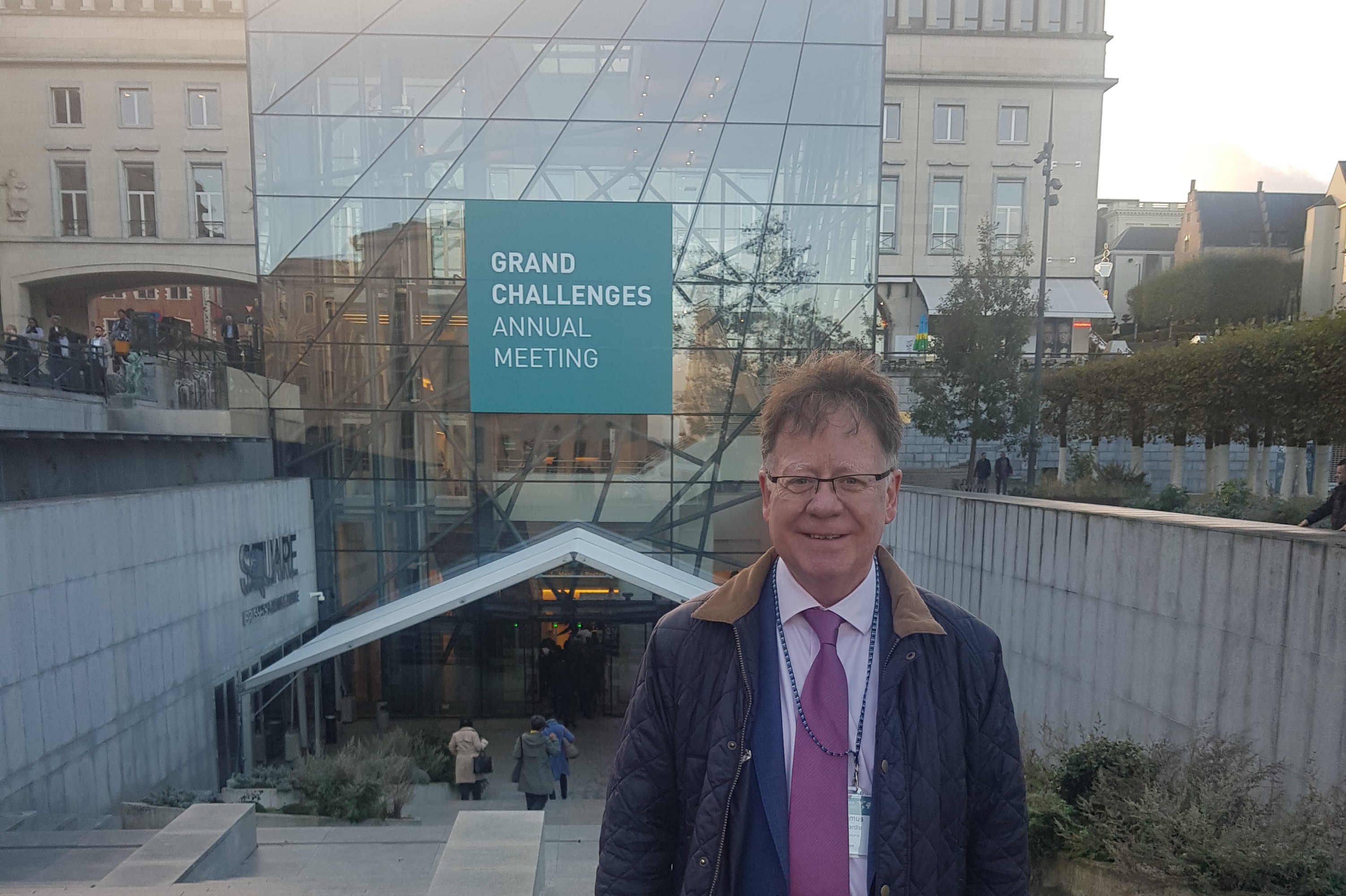Grand Challenges 2022
Recently, I was fortunate enough to attend the Grand Challenges Annual Meeting, where I was able to deepen my understanding of the obstacles facing the global health sector today and the ways we are coming together to combat and overcome them. Here, I was able to hear first-hand how the best minds in the global health space were building creative solutions and see the ways in which innovative scientific collaboration can improve the human condition and foster a better future for communities around the world. The Grand Challenge provides the opportunity for these advancements to be made, bringing together research and development so that ideas can become reality.
There is still much that needs to be done to address the ongoing impact of COVID-19, as well as the numerous other serious issues facing the planet, including the Climate Crisis, internal conflicts and geopolitical polarisation. Each of these problems feed into humanitarian emergencies around the world and highlight the drastic health inequalities that exist within communities and between countries. Inequalities that were spotlighted during the Pandemic, as things as simple as access to health and WASH services created vast differences in transmission rates, preventative measures and vaccination rates. Infectious diseases such as HIV, TB and Polio have grown during this time as funding and resources were redirected towards the Pandemic and away from these long-standing challenges. To address these issues, new tools and strategies must be developed. Fundamentally the inequality of health remains as challenging now as it did three years ago and remains still the key area to be addressed.
Though these existing challenges must be dealt with, potential future obstacles must also be prepared for. Even now, as we slowly move towards a new normal in a post-pandemic world, we are faced with the reality that another pandemic is a likely occurrence. The Catastrophic Contagion of 2025 Exercise felt all too real to me and demonstrated how crucial it was for us to take the lessons we learned over the last three years and create better processes around things like data gathering and supporting country health systems for handling a pandemic going forward.
Ursula von der Leyen, President of the EU Commission, has identified six such learnings. Solidarity between the member states proved to be of the utmost importance, leading to high levels of vaccination and the ability to redistribute their resources to low- and middle-income countries. Science does not exist in a vacuum, and it is crucial that this be acknowledged in both the purposes for which we pursue science and the ways in which we ensure those in need have access to the findings and advancements made possible by scientific inquiry. Vaccines are essential, ensuring that everyone has access to these live-saving, preventative treatments is not only necessary for dealing with a pandemic but also endemic diseases. To ensure these vaccines and other technological advancements can benefit the greater public, there must be the necessary manufacturing capacity in place that can react with short notice in a timely manner to sudden demand. Though solidarity inside the EU was a powerful tool, for the future of health, we must see this cooperation flourish at a global level. We are, after all, in this together, and disease does not respect national borders. And finally, the Global Health System that we know today must be reimagined. It is not fit for purpose as is and requires innovation and new forms of collaboration to ensure that all people have access to the care and treatment that they need.
Now is the time to invest in responding to these lessons and in the science and partnerships that will be crucial to creating a better Global Health System. This is why it is essential that funding for global health is increased and made a priority for governments worldwide. I know that if we trust in the science and the people behind it, a lasting impact can be achieved. 
That is what resonated most strongly for me. Yes, these challenges can and should be terrifying, but I still found myself hopeful at the end of this event. There are immensely talented people out there with the dedication and passion needed to find the solutions to these problems. It was humbling to hear them talk and get to see a small fraction of the immense work they are undertaking to make the world a healthier place. I felt particularly proud to hear my friend and advisor to SRI Executive, Professor Peter Piot, thanked by President Ursula von der Leyen for his services during the pandemic. I look forward to continuing to support people at the forefront of health innovation in their efforts through my work at SRI Executive, where we act as the bridge that connects them to the organisations that can see their ambitions realised. Though these challenges can appear insurmountable, if you take them apart piece by piece, it becomes clear that we can make a real difference as long as we have the partners, tools and will to succeed.



